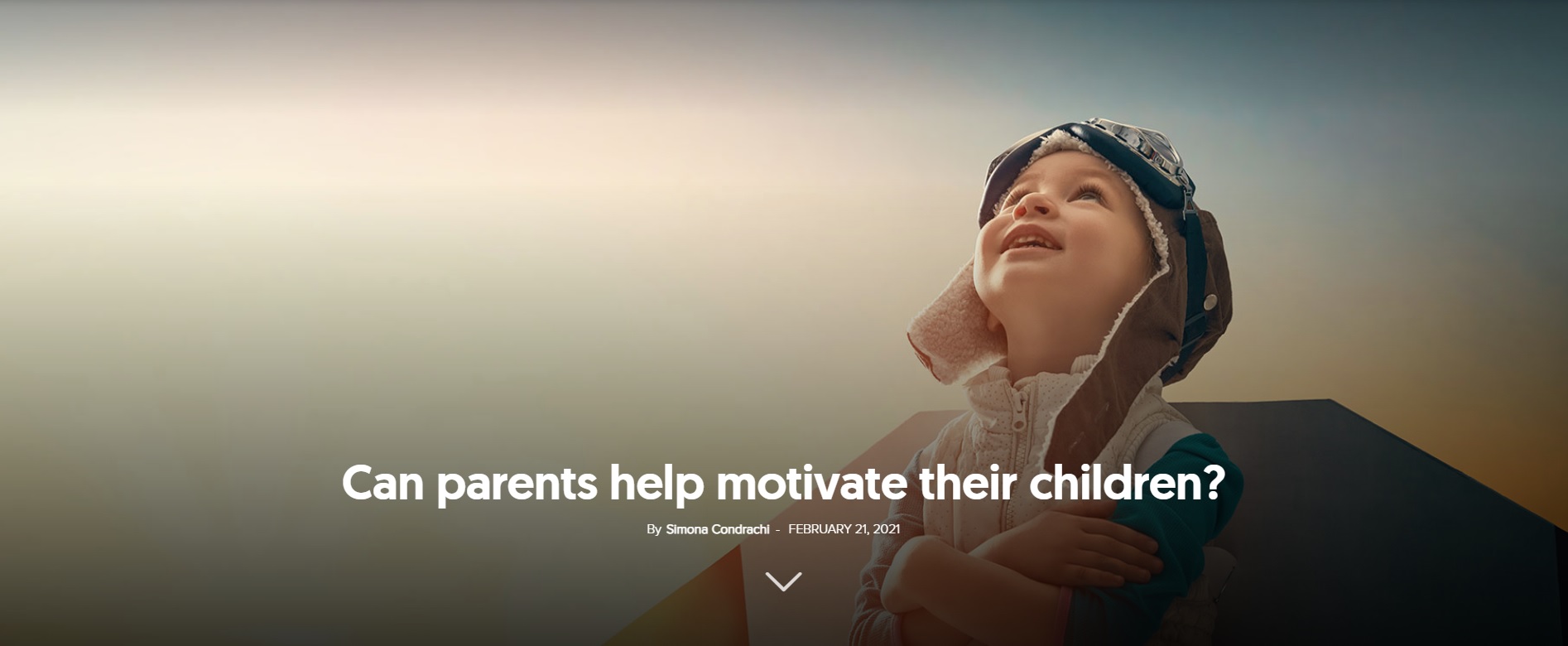The perspectives we acquire as children about ourselves as individuals, about the world, and even about God, become beliefs that filter and guide the choices we make as adults. Some of these beliefs are helpful. Others are not. In fact, many of the obstacles we encounter in adult life are caused by these filters.
In The Lost Art of Thinking, Dr Neil Nedley states that “mental filters can cause even the most objective of data to not be received in a totally accurate way. In cases of poor decision-making, it is the filters, rather than valid information sources, providing the data.”[1]
The messages that children receive, either directly through words or indirectly through behaviour and emotions, contribute to the formation of a certain perspective on life, which describes how children see themselves, the world around them, and God. When repeated and accompanied by emotions, these messages become an integral part of a child’s way of thinking, giving rise to behavioural patterns and personal beliefs that become fundamental to how a person understands and interacts with the world, like pillars in their mental structure.
Sad self-fulfilling prophecies
The concept of self-fulfilling prophecies helps us to understand how an initial belief can lead to behaviours that indirectly validate and reinforce that belief. The mind looks for evidence to support what it believes to be true, even if the belief is not based in reality. For example, children may begin to believe that they are incapable of practical activities if they are told, directly or indirectly, that they lack practical skills—for example, if they break a glass and receive negative reactions such as “Wow, you’re clumsy!” or get the silent treatment. They may come to see any similar incident as confirmation of their ineptitude. Even if they are successful in other practical activities (they can wash dishes without breaking them, build things with their hands or make beautiful sandcastles, etc.), children will tend to downplay these achievements, thinking that perhaps “anyone can do it” or that “it’s not that hard.” This type of thinking leads them to avoid opportunities that would allow them to develop their practical skills, because the initial belief acts as a barrier to trying and learning. By avoiding these opportunities, children actually reinforce the initial belief, creating a cycle in which thoughts and behaviours feed into each other in a negative way.
The way parents communicate and relate to their children, especially with regard to their mistakes and undesirable behaviours, has a great influence on the formation of mental filters. If an upset child is comforted with chocolate or a gift, they will learn that relief and happiness depend on external factors and material pleasures, a predisposition that can lead to pleasure-seeking in relationships, substance abuse or long-term overeating.
Children need security and acceptance and relate to their parents as infallible and all-knowing. Parents are in fact their security and it is then impossible for children to question them. Although they may sometimes feel wronged in their relationship with their parents, young children tend to blame themselves in an effort to gain their parents’ attention, love, and approval.
Children who lack a secure attachment may develop the belief that they are bad and unlovable. They tend to see danger where there is none and overreact to certain difficult situations, which can lead to ongoing conflict with others, aggressive and controlling behaviour, and erosion of self-esteem.
A child who is emotionally neglected by busy parents may interpret this as a reflection of his or her own low self-worth. If children express their need for attention in agreeable or—in the case of very young children—less agreeable ways and are ignored, their belief that they are worthless, that they do not matter, is reinforced. The feeling of loneliness reinforces this perception, leading to an inner belief that they are not worthy of love or appreciation. Gradually, they won’t even allow themselves to listen to their need to connect with others, because they already believe that they are not worthy, and they will continue to seek confirmation that reinforces this perception.
If they persist in their desire to connect, they will look for all sorts of ways to gain attention. At best they will be very obedient, surprising their parents with nice things in the hope that they will get a pat on the back, or they will say nothing when they disagree with them about something. In relationships with children their age, the belief that they don’t matter may translate into “others are mean and don’t like me, they don’t want to play with me.” By the time they reach adulthood, this message will have developed into a firm inner belief that they are not good enough, or that they need to work hard to prove their worth and be validated. That’s why they will be reluctant to take risks, will hold back, and will limit their dreams.
When parents are overly controlling, they make their children feel powerless. Parents who are perfectionists can make their children feel under pressure to please them. Children then feel that they are failing to please their parents, and this eventually leads to feelings of powerlessness and resignation. Self-worth is associated with the ability to meet parental expectations.
Even simple remarks such as “Don’t speak unless asked,” or “Behave yourself!” when repeated without the parent realising what is behind the child’s need to ask, speak or fuss, can inhibit the child’s free expression. As an adult, the child may be reluctant to publicly communicate or to express joy in a dynamic way.
Operating in such patterns can disconnect a child from the self, their wants, needs or joys. They lose their curiosity, their freedom to express themselves, to explore, and to innovate. This is the price they pay for trying to protect their need for security.
In adult life, blockages occur when childhood beliefs are challenged, because the behaviours that sustained us in childhood no longer serve us. A simple “Don’t talk to strangers” that protected us as children can cause difficulties when we meet new people. Beliefs that once protected us now sabotage us.
The main saboteur
In order to maintain a sense of comfort and safety, children may try to develop certain thought patterns, but unfortunately there is a tendency in each of us to maintain an inner critic that is rarely in our favour. This inner critic is constantly watching and scrutinising our actions, whether they relate to ourselves, others or circumstances. The inner critic is the voice that admonishes us harshly for every little mistake, that creates exaggerated fears about the future, that magnifies our perception of risk, that wakes us up in the middle of the night with fears, and that observes the negative aspects in relationships with others or in the dynamics of a group.
The inner critic can use absolute, black and white thinking: “If I didn’t get an A, I’m a loser.” Or it may downplay achievements: “How come I didn’t know the answer to question 100 (even though I got the other 99 right)?” Or it can lead us to interpret any feedback or comment as being aimed directly at us: “The boss was definitely referring to me when they said such and such.” The internal critic can also create unrealistic imperatives, such as “I should be able to present the project without any anxiety,” or “I need to work overtime to complete my tasks.”
In relation to others, the internal critic tends to generalise and label, e.g. “All people are bad,” “Women should not be in leadership positions,” or apply excessive pressure of responsibility: “How could she not make the meeting?” It can also imply the thoughts of others: “If she left the room, she must not like the workshop.”
When it comes to situations, the internal critic often anticipates negative outcomes, e.g. “The exam is bound to be difficult, it’s not worth trying,” or blames circumstances: “If it hadn’t been raining, I would have managed to walk the 10,000 steps today.”
Other voices
Convincing children that they are helpless will, in the long run, contribute to the development of a victim mentality. They will become hypersensitive to their feelings, especially negative ones, and will constantly look for external causes for their problems, believing that they cannot control or influence their environment. In such a mindset, children may even become victims of their own perceptions, giving up on the idea of taking control and changing themselves. A common expression in this context would be: “What could I do? This is me/This is who I am.”
On the other hand, the belief that one must please everyone in order to be appreciated can lead to the formation of a fickle character in adulthood. As adults, they will try to gain attention by being helpful, flattering, and supportive. The result, however, will be a heavy dose of resentment as they no longer live up to their values or meet their own needs.
The belief that everything must be perfect and that there is no room for error can lead to the development of perfectionism, which increases susceptibility to anxiety. An excessive preoccupation with order and structure, coupled with unrealistic expectations of self and others, can create enormous pressure.
Fear of upsetting others can lead to avoidant behaviour. In order to maintain harmony and comfort, the person will avoid conflict and difficult tasks, thereby missing the opportunities for development and growth that can be associated with such challenges.
The belief that one must earn the love of others and prove oneself worthy of their esteem can lead to the development of achievement-oriented behaviour. Such a person may become addicted to achievement in order to maintain self-esteem and feel validated. This creates a never-ending cycle in which the latest success quickly fades and is replaced by the need to achieve another goal.
Self-sabotage and spiritual life
A person who feels compelled to have control over all aspects of life and who has difficulty trusting others will face challenges when it comes to entrusting their life to God, especially in times of distress. Often, this inner turmoil in our relationship with the Divine is related to an inability to relinquish control because the mind urges us to believe that only we can find the right solution. For example, a mother was faced with the need to stop worrying about things beyond her control when her daughter got married, precisely because she was used to controlling her daughter’s life. This behaviour had been learned from her relationship with her ten younger siblings, to whom she had been both older sister and mother.
Perfectionists may have difficulty accepting divine forgiveness because they are unwilling to forgive themselves. In this mindset, sin is inconceivable and the same rigidity is projected onto the image of God. This attitude fundamentally underestimates the value of the divine sacrifice. Similarly, if we have been encouraged in childhood to express our curiosity only in rigid and structured ways, there is a danger of accepting religious teachings indiscriminately and living our spiritual lives in a rut. But God can be understood and appreciated in a deeper way if we are willing to explore and question with an open mind.
Those who try to please everyone run the risk of not having the inner strength and confidence to express their religious beliefs. Those who try to save everyone often put themselves in the place of God and place themselves above the value of others.
The belief that “they aren’t capable, only I know how to help them” was inadvertently ingrained in one little girl’s mind. Her father, an ambulance driver, rushed to help everyone, disregarding his time off and even his own health problems. As an adult, she felt that this tendency to take on other people’s pain was not beneficial. What she didn’t realise at first was that her behaviour was influenced by the example her father had set for her as a child. Release came only with awareness. This included recognising the connection between her own behaviour and that of her father, and understanding that the people around her had the ability and the right to take care of themselves.
Achievement-oriented individuals may develop a tendency to earn their salvation through action and seek recognition from others for their efforts. In contrast, individuals with a victim mentality may become trapped in a repetitive cycle of harmful behaviour.
The flipside
Forming ideas and beliefs has not only negative consequences, but also significant benefits. Imagine an adult who, since childhood, has developed a balanced view regarding forgiveness, expressing affection, and respecting personal boundaries and those of others. These beliefs about a balanced and healthy lifestyle will serve as valuable tools in his or her adult life, facilitating healthy interpersonal relationships and a balanced approach to challenges.
It is essential that during the formative years of children’s lives they are surrounded by fundamental principles rooted in unconditional love, empathy, the desire to learn and explore (curiosity), self-control and discipline, and a deep trust in a higher spiritual power, namely God. These core values serve as a solid foundation for their emotional, spiritual, and social development.
In order for a parent to pass on these positive and constructive beliefs to their children, it is necessary to begin with an awareness of their own beliefs and thought patterns, especially those that are so ingrained that they operate almost as though on autopilot. It is essential for parents to recognise and understand these beliefs so that they can take steps to ensure that those they pass on to their children are beneficial and support their harmonious development.
Simona Condrachi is a mindset coach with international experience. She has found that only awareness of our own mental filters will lead to the implementation of beneficial filters in the minds of our children.




















